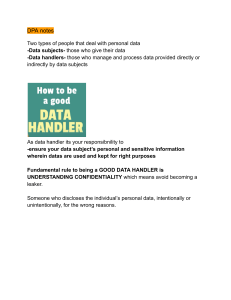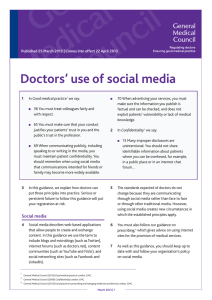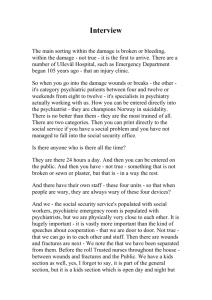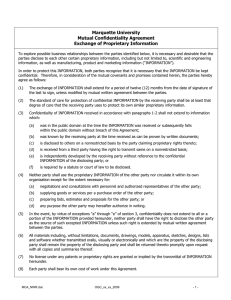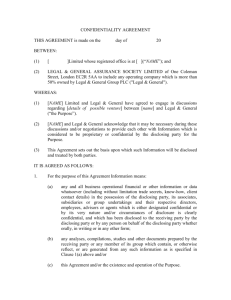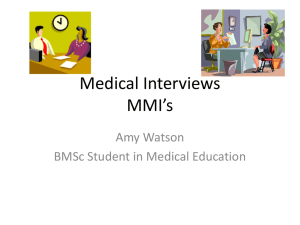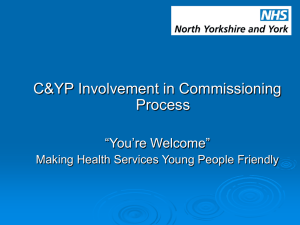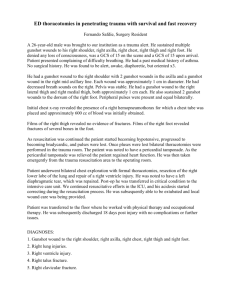Confidentiality PowerPoint Presentation
advertisement
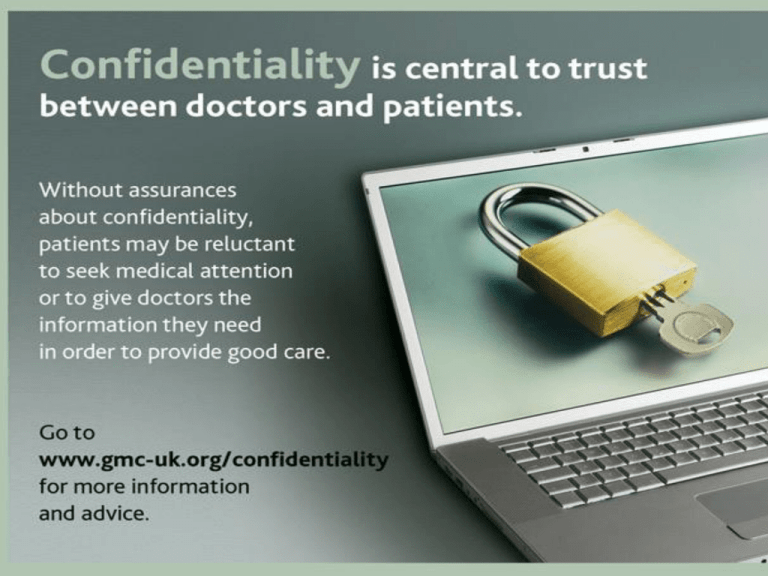
Confidentiality new guidance from the GMC Statutory power to advise The Medical Act 1983 gives the GMC power to provide, in such manner as the Council think fit, advice for members of the medical profession on – standards of professional conduct; standards of professional performance; or medical ethics Good Practice in Prescribing Personal Beliefs In Medical Practice Acting as an Expert Witness Reporting Convictions Raising Concerns Hippocrates All that may come to my knowledge in the exercise of my profession or in daily commerce with men, which ought not to be spread abroad, I will keep secret and will never reveal. 5th Century BC Principles Confidentiality is central to trust between doctors and patients. Without assurances about confidentiality, patients may be reluctant to seek medical attention or to give doctors the information they need in order to provide good care. But appropriate information sharing is essential to the efficient provision of safe, effective care, both for the individual patient and for the wider community of patients. Balance Exceptions to the general duty: Law (statute and judge-ordered) Consent (implied or express) Public interest Does the public interest in disclosure of a patient’s personal information outweighs both the public interest and the patients’ interest in a confidential health service? Dilemmas Should the police be informed when a patient presents with a gunshot or knife wound, even if they object to disclosure? In research, how difficult must it be to get patients’ consent before it’s acceptable to disclose without it? If a patient has a STI and won’t tell their sexual partner, should their doctor do so? Development 1. Publication follows two years of development, including extensive consultation 2. Working group chaired by Dr Henrietta Campbell, the former CMO for Northern Ireland 3. Council considered carefully the, sometimes conflicting, views about what issues should be covered in the guidance as well as the balance between patients’ privacy rights and the potential good that comes with sharing information Summary 1. A framework of principles within which doctors can exercise professional judgement 2. To help identify the relevant legal and ethical considerations, and to help doctors make decisions that respect patients’ privacy, autonomy and choices and that also benefit the wider community of patients and the public 3. Emphasis remains firmly on anonymising or coding data, or getting patients’ consent for disclosures of identifiable information, whenever practicable. What’s new? New guidance on: shared genetic information information sharing with patients’ families, partners and carers A new, clearer approach to: research and other secondary uses disclosures to protect the patient and others from risks of serious harm reporting gunshot and knife wounds Supplementary guidance 1. Reporting concerns about patients to the DVLA 2. Disclosing records for financial and administrative purposes 3. Reporting gunshot and knife wounds 4. Disclosing information about serious communicable diseases 5. Disclosing information for insurance, employment and similar purposes 6. Disclosing information for education and training purposes 7. Responding to criticism in the press Case studies
